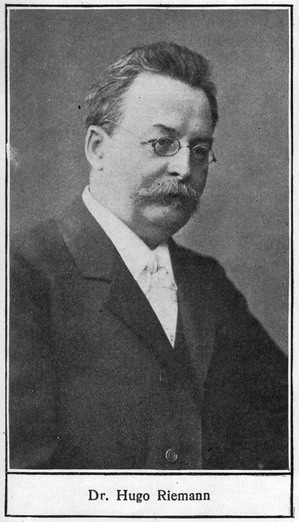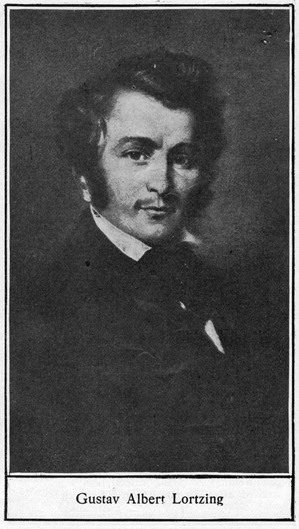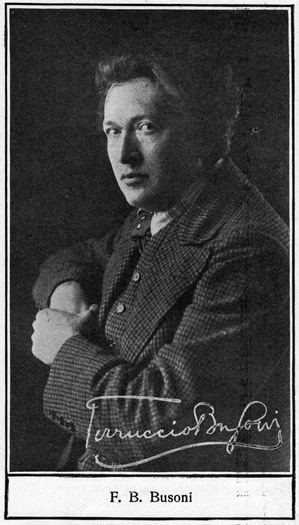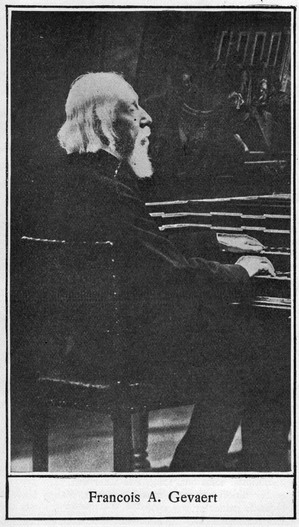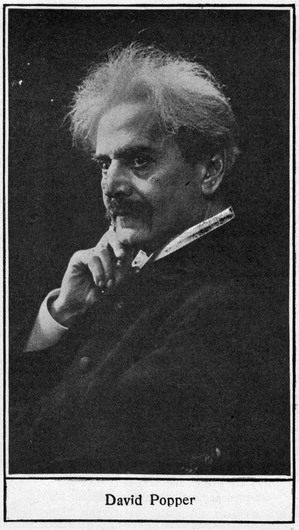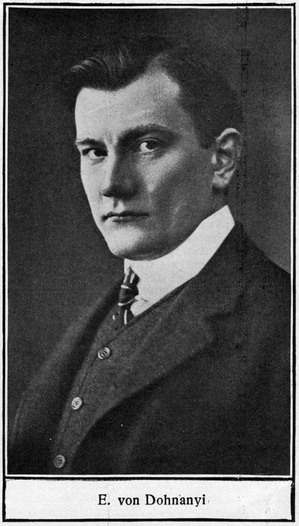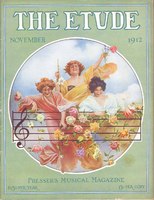Dr. Hugo Riemann was born at Grossmehlra, near Sondershausen, July 18, 1849. He was educated in law and other subjects at Berlin and Tübingen. After going through the Franco-German war he decided to devote his life to music, and studied accordingly at the Leipzig Conservatory. He then went to Bielefeld for some years as a teacher, but subsequently returned to Leipzig as “privatdozent” at the University. Riemann went to Bromberg in 1880, but 1881-90 he was a teacher of piano and theory at Hamburg Conservatory. He held a post at Wiesbaden (1890-95), but eventually returned to Leipzig University as lecturer. In 1901 he was appointed professor. In addition to his work as a teacher, lecturer and composer of pedagogical pieces, Dr. Riemann has made for himself a world-wide reputation as a writer upon musical subjects. His best known works are the famous Musiklexikon, a complete dictionary of music and musicians, the Handbuch der Harmonielehre, a work on the study of harmony, and the Lehrbuch des Contrapunkts, a similar work on counterpoint, all of which have been translated into English. He has written many other works which indicate an encyclopædic knowledge of music in all its branches. He is held in the highest possible esteem by German musical authorities.
Lortzing was born in Berlin, October 23, 1801, and died there January 21, 1851. His father was an actor, and the wandering life prevented him from getting an adequate musical education, though he studied for a time under Rungenhagen. However, he acquired some skill with the piano, violin and violoncello. He studied the works of Albrechtsberger and soon began to compose, at the same time singing and acting on the stage. He produced his first operetta in Cologne, 1824, and some years later wrote an oratorio. In 1833 he became first tenor at the Stadttheater in Leipzig, and here passed the happiest period of his life. Two comic operas from his pen appeared in 1837, Die beiden Schützen and Czaar und Zimmermann, and both were very successful, especially the latter. His next few works fell flat until in 1842 Wildschütz again placed him high in public favor. Two years later he left the stage and became capellmeister at the theater, but he was not successful at this work and soon gave it up. Other operas followed, Undine (1845), Der Waffenschmied (1846), and Rolandsknappen (1849). The latter work procured him the offer of a capellmeistership at Leipzig, but negotiations fell through. From now on his life was a hard one. He went from place to place, singing, acting, or conducting his own operas; his new operas were refused, and eventually he died conducting vaudeville in Berlin. A public subscription was raised after his death for his family.
Busoni was born at Empoli, near Florence, April 1, 1866. His father was a clarinet player, and his mother (Anna Weiss) gave him his first piano lessons. He made his first public appearance at the age of nine in Vienna, and afterwards studied there with Hans Schmitt and in Graz with Remy. He was so successful at the age of 17 that a medal was struck in his honor by the city of Florence, and he was elected a member of the Accademia Filamonica at Bologna. In 1886 he went to Leipzig, and then for a while Busoni was engaged in teaching at Helsingfors, 1888; Moscow, 1890; Boston, Mass., 1891-93, and Berlin, 1894. He has achieved a high reputation as a concert pianist all over the musical world, and has recently come to the front as a composer of opera. One of his greatest gifts is his ability to interpret the music of Bach. Busoni has also edited the works of Bach in a way that in some respects surpasses all previous attempts. Wherever possible, for instance, he has not failed to take advantage of modern developments, so as to give the music of the old Cantor of Leipzig a richness more in keeping with its character. During a recent tour of the United States, Busoni became immensely popular with American audiences wherever he went.
(Geh-vart) Gevaërt was born at Huysse, near Oudenarde, July 31, 1828, and died at Brussels, December 24, 1908. His father was a baker, and he was intended for the same profession, but better councils prevailed and he was permitted to study music. He was sent in 1841 to the Conservatory at Ghent, where he studied under Sommère and Mehgal. He was then appointed organist of the Jesuit’s church. His compositions soon attracted attention, and he eventually won a prize which entitled him to two years’ travel. The journey was postponed during the production of his first opera and other works. In 1849 he commenced his journey, and after a short stay in Paris went to Spain, and subsequently to Italy. Important compositions were produced in Paris, and in 1867 he was appointed “Chef de Chant” at the Académie de Musique, Paris, in succession to Halévy. In 1871 he was appointed head of the Brussels Conservatory. Though a successful composer he was happier as a teacher, historian, writer and lecturer on music. His many works include the well-known Treatise on Instrumentation, a book on Harmony and a Vade Mecum for organists. His compositions include about a dozen operas (Quentin Durward, Le Capitaine Henriot, etc.), cantatas for national occasions, songs and other works. His chief service to music, however, was as an educator.
David Popper was born June 18, 1846, at Prague, and studied music at the conservatory in that city. He studied the violoncello under Goltermann, and soon attracted attention. He made his first tour in 1863, and after charming the German musicians—especially Hans von Bülow—he extended his tour to Switzerland, Holland and England, where he was equally successful. He made his debut in Vienna in 1867, and was made solo-player at the Hofoper. After a few years, however, Popper resigned so as to continue his concert tours on a larger scale. For many years he traveled over Europe, everywhere being received with the greatest possible favor. Since 1896 he has been professor in the Conservatory at Budapesth. Many compositions for his instrument have made his name familiar to concert-goers, his best known work being the famous Sarabande and Gavotte, besides string quartets, suites, concertos, etc. He has more recently written a “monumental” Violoncello School. According to Grove, “His tone is large and full of sentiment; his execution highly finished, and his style classical.” His compositions are remarkably well adapted to the instrument for which they are written and have achieved a well deserved popularity among violoncellists.
(Doh-nahn’-yi) Dohnanyi was born at Pressburg, Hungary, July 27, 1877. He first studied music with his father, a professor of mathematics in the gymnasium, but afterwards became a pupil in pianoforte and composition with Carl Forstner, organist of Pressburg Cathedral. In 1894 he became a pupil of the Royal Hungarian Academy of Music at Budapest, where he was a pupil of Stephan Thomán for piano and of Hans Koessler for composition. He completed some elaborate chamber music for strings, and in 1897 his symphony in F was rewarded the King’s Prize. After a few lessons with d’Albert, Dohnanyi made his début in Berlin, 1897, and was at once recognized as an artist of high attainments. Similar success in Vienna followed, and thereafter he made the tour of Europe with the greatest success. He made his London début at a Richter concert in the Queen’s Hall, where he gave a memorable performance of Beethoven’s G Major concerto. During the following season he visited the United States, and established his reputation here no less than abroad. Dohnanyi is devoting his time more and more to composition, and consequently has not appeared so much in public in recent years. “His compositions,” we are told in Grove’s dictionary, “show a strong feeling for classical forms, great originality of ideas, and treatment that is always interesting and very often felicitous in the extreme.”


